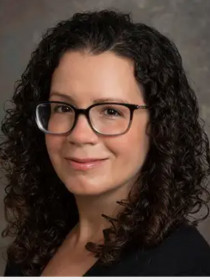Connect with Erin
About Erin
Cassese's research examines voter psychology, with an emphasis on the role of gender in American political campaigns and elections. This work has appeared in Political Behavior, Political Research Quarterly, Political Psychology, Politics & Gender and a number of other scholarly journals. Cassese’s scholarship has been cited by national media outlets, including The New York Times, The Washington Post, Vox, and FiveThirtyEight.
In the News
Publications
Explores gender differences in policy attitudes both across parties and within parties. Finds Republican women are more moderate than Republican men in several policy areas, but that gender differences across party are more meaningful than gender differences within parties.
Explores how beliefs about race and gender shape support for pay equity policy. Finds that support varies depending on the characteristics of women who stand to benefit from programs that would ensure equal pay for men and women.
Investigates female candidates' electoral success in Congressional races that are "open seats"- meaning that no incumbent is running in the contest. Finds that female candidates face greater harm in fields with multiple high-quality challengers when compared to similarly-situated male candidates.
Investigates the effects of trait and issue based campaign attacks on candidate evaluations and voter decision making. Finds female candidates are particularly vulnerable to attacks on stereotypically feminine traits and issues.
Examines the effects of religiosity on the political behavior of men and women. Finds evidence that conservative religious beliefs uniquely affect women's political identities in ways that depress political behavior.
